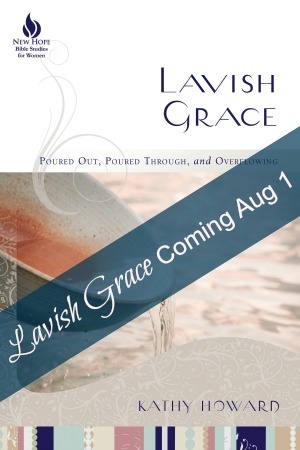Kathy Howard's Blog: Unshakeable Faith for Life, page 48
May 16, 2016
This isn’t Real Life


 My favorite soda is Coca-Cola. Don’t try to give me some substitute cola. Some generic thing. Or Pepsi. Definitely not Pepsi. I will not settle. Only the “real thing” will do.
My favorite soda is Coca-Cola. Don’t try to give me some substitute cola. Some generic thing. Or Pepsi. Definitely not Pepsi. I will not settle. Only the “real thing” will do.
But how often do I – do you – settle for substitutes for life? This physical life we’re living is not real life. It’s merely a shadow. Yet we often live like this physical world is the end all, be all. We focus on things that are temporary. We invest our energy and resources and time on things that don’t last.
Are you living #RealLife or a shadow life?
Click To Tweet
In the book of Colossians, the apostle Paul encourages us to immerse ourselves fully and completely in our real life:
“Since, then, you have been raised with Christ, set your hearts on things above, where Christ is seated at the right hand of God. Set your minds on things above, not on earthly things For you died, and your life is now hidden with Christ in God. When Christ, who is your life, appears, then you also will appear with Him in glory.” Colossians 3:1-4, NIV
Our real life is our relationship with Jesus and our citizenship in the Kingdom of God. Everything else is a poor substitute. Yet so often I act like this shadow life is the real thing. What about you?
7 Signs you may be missing out on Real Life:
Trying to “follow all the rules” (Colossians 2:20-23).
Struggle constantly with the old sin nature and its desires (Colossians 3:5-7).
Relationships with other Christians are superficial and/or tumultuous (Colossians 3:8-11).
Fulfillment and contentment seem just out of reach (Colossians 3:15).
You worry excessively about your physical needs.
Your calendar rules the day.
You rarely have time to linger over God’s Word.
We don’t have to miss the real thing! Paul Doesn’t just give us the characteristics of living a shadow life, he also gives us practical tips for living our “real life” now.
5 Tips for Embracing Real Life:
Purposefully “put on” the character and attitude of Jesus (Colossians 3:12).
Form and keep a vital connection with a local church (Colossians 3:13-15).
Practice gratitude (Colossians 3:15).
Immerse yourself in God’s Word (Colossians 3:16).
Commit everything you do to the glory of Christ (Colossians 3:17).
Are you living the real life God has for you? If not, what can you do today to step into His real life?!
7 signs you might be living a shadow life
Click To Tweet
5 tips for embracing #RealLife
Click To Tweet
The post This isn’t Real Life appeared first on Kathy Howard.
May 12, 2016
Lavish Grace is Coming


 Have you underestimated grace? God’s lavish grace is not “just enough” and it’s far more than “sufficient.” His grace washes through and over every aspect of a believer’s life. It’s like a free-flowing river that knows no bounds. Yet, sometimes we fail to jump in!
Have you underestimated grace? God’s lavish grace is not “just enough” and it’s far more than “sufficient.” His grace washes through and over every aspect of a believer’s life. It’s like a free-flowing river that knows no bounds. Yet, sometimes we fail to jump in!
A few years ago, God began to show me my desperate need for His abundant, lavish grace. In every day, in every situation, and in every relationship. So, I began studying about it in His Word and talking about it at women’s events. Then the next thing you know, I’m writing a new Bible study. And you guessed it, the new study is about God’s exceedingly, abundant grace.
This writing journey has been particularly personal. God has given me lots of opportunity to put what I’ve studied into practice. Of course some days it’s felt like two steps forward and one step back. And I’ve had the incredible blessing of witnessing God’s grace at work in the lives of people very dear to me.
Have you underestimated God’s grace? #LavishGrace is coming August 1st!
Click To Tweet
So, it is with great excitement and anticipation that I announce:
Lavish Grace is coming August 1st!
Lavish Grace is a 9-week, in-depth study through Paul’s experiences with and teachings on grace, designed to help us discover the riches and abundance of God’s grace for our lives today. Lavish Grace includes contemporary examples of God’s grace at work in the lives of women today to help you also embrace God’s amazing grace. The study is divided into 3 sections:
Poured Out – Explore God’s work of grace in our eternal salvation, continued spiritual transformation, as well as our call and equipping for ministry and service.
Poured Through – Discover what it looks like to be channels of God’s great grace, not just stagnant pools.
Overflowing – Learn how to rest in and rely on His grace in the inevitable times of trials, struggles, and difficulties.
You will hear a lot more about Lavish Grace and all the exciting book launch activities in the coming weeks. But here’s a bit of a teaser: Online study opportunities, giveaways, Facebook party, coloring contests, and more! I would love for you to be a part of it all. If you can help get the word out about God’s lavish grace – host a blog, share on social media, lead a study – let me know in the comments below!
Praise for Lavish Grace
Kathy has beautifully woven an account of how the grace God so incredibly pours into us, and practically shares with us ways we can exhibit grace to others. You will be blessed by this book! I know I was. Jennifer Rothschild
If you want to renew, revive, and rejuvenate your life with God’s lavish grace, then the pages of this book will shower you with hope and help you embrace the exuberant, abundant grace-filled life we all long for! Pam Farrel
Kathy Howard does more than point out our need for grace; she teaches us to not only pour it out, but also to lap it up. A must read for a needy world. Kathi Lipp
If you’re ready to understand and embrace this life-altering love in a fresh way, then don’t hesitate to take this grace-walk with Kathy. Gwen Smith
Kathy Howard pinpoints what each of us needs—a fresh awareness of God’s grace. Debbie Taylor Williams
A few links to check out:
Full endorsements for Lavish Grace
Amazon preview link
The post Lavish Grace is Coming appeared first on Kathy Howard.
May 9, 2016
Rusty Mailboxes, Aching Bones, and the Overcomer


 My parents still live in the house where they raised my brother and me. When we moved onto Dianne Street, I was eight and my brother was just five. That was 46 years ago.
My parents still live in the house where they raised my brother and me. When we moved onto Dianne Street, I was eight and my brother was just five. That was 46 years ago.
Every time I make the four-hour drive to visit mom and dad – particularly these last few years – I am keenly aware of the passage of time and the toll this physical life takes on physical things.
For instance, just a few days ago, when I was there for a visit, I noticed the mailbox. I mean really took note of it. It’s the same mailbox they’ve had for decades. The same one I mowed down with my mother’s Lincoln when I was a young driver. Even then, Dad didn’t replace the box; he just replaced the narrow iron post with something a bit sturdier.
Today, that mailbox bears the wounds of standing unprotected for decades at the end of the driveway in all kinds of weather. Although the numbers, 6-4-1-3, still bravely cling to the side, rust dominates the exterior and the lid doesn’t quite close all the way.
Of course my parents have aged as well. Combined, they bear the marks of more than 150 years of living. Joy and grief. Success and failure. Fullness and loss. Just like anyone who lives in this world for very long. And today, they both struggle with physical ailments that only new bodies can fix.
Every visit home is bittersweet. I love spending time with my parents, but I wish I could really make things better. Or turn back the clock.
Today God reminds me that none of this takes Him by surprise. He well knows the effects this broken world has on His children. Sin has subjected this physical world and all that live on it to decay. We all groan inwardly while we eagerly wait for the fulfillment of God’s promises to His children (Romans 8:20-25).
We could replace the rusty mailbox with a new one, but it would rust again. The world would still get the last word.
But, praise God, the world does not get the last word in my parents’ lives. Or my life. The world does not have to have the last word in your life.
The world does not have to get the #LastWord. Be an #Overcomer
Click To Tweet
God gets the last word. The victory will be and is His. Everyone who believes that Jesus is the Son of God, everyone born of God (1 John 5:4-5)! We are overcomers!
God gets the #LastWord! Everyone #BornOfGod is an #Overcomer
Click To Tweet
Are you an overcomer? Have you been born again by the Spirit of God? If not, why not today?
Want to be an overcomer? Find out more about a saving relationship with Jesus?
The post Rusty Mailboxes, Aching Bones, and the Overcomer appeared first on Kathy Howard.
May 5, 2016
7 Characteristics of a Mature Christian


 Would you describe yourself as a mature Christian? Honestly, that term feels sort of subjective. What one person considers mature, another might not.
Would you describe yourself as a mature Christian? Honestly, that term feels sort of subjective. What one person considers mature, another might not.
However, the Bible does give us some guidelines for spiritual maturity. First, God calls us to spiritual maturity:
“…until we all reach unity in the faith and in the knowledge of the Son of God and become mature, attaining to the whole measure of the fullness of Christ.” Eph 4:13, NIV
The Greek word translated as “mature” in Ephesians 4:13 is teleios. It means to be “complete, perfect, brought to end, of full age.” Spiritual maturity is God’s goal for us.
Would you describe yourself as a #MatureChristian? 7 characteristics
Click To Tweet
Next, our maturity is so important to God, He allows trials into our lives to grow our faith:
“Consider it pure joy, my brothers and sisters, whenever you face trials of many kinds, because you know that the testing of your faith produces perseverance. Let perseverance finish its work so that you may be mature and complete, not lacking anything.” James 1:3-4
If our maturity is this important to God, perhaps we should take it more seriously. But how can we know if we’re growing spiritually? What does a mature Christian look like?
What does a #MatureChristian look like? 7 characteristics from #Scripture
Click To Tweet
7 Characteristics of a Mature Christian
The Bible gives us many marks of a growing believer, like perseverance and spiritual fruit, but the Bible specifically mentions the following 7 characteristics in conjunction with the Greek word teleios:
Recognizes the difference between right and wrong then does what is right (Hebrews 5:14)
Not easily swayed by false teaching (Ephesians 4:13-16) – So grounded in the truth of God’s Word, she quickly recognizes falsehood.
Rooted in love (Ephesians 4:13-16) – Our words and actions flow from love for our fellow believers.
Serves the church (Ephesians 4:13-16) – A Christian cannot grow to her full potential apart from a vital connection to a local church. She must find her place of mutual service and encouragement.
Lives with an eternal perspective (Philippians 3:13-15) – The reality of the spiritual and eternal drives her life. She purposefully strives to continual spiritual growth because she knows this life is temporary.
Controls her tongue (James 3:2) – If a Christian has good control of her speech, you know she is on a path to maturity!
Reflects God’s character to the world (Matthew 5:48) – God wants us to grow in spiritual maturity in order to reflect the character of Jesus to a watching world.
So how are you doing? What area do you struggle in the most? Why?
Want to be purposeful in your spiritual growth? You may find this post helpful.
The post 7 Characteristics of a Mature Christian appeared first on Kathy Howard.
May 2, 2016
Are You Disappointed with God?
 Are you disappointed with God? I know, that’s a loaded question. Even if we feel that way or have felt that way in the past, most of us would hesitate to admit it. After all, God is the omnipotent, omniscient Creator. And we are just, well, us.
Are you disappointed with God? I know, that’s a loaded question. Even if we feel that way or have felt that way in the past, most of us would hesitate to admit it. After all, God is the omnipotent, omniscient Creator. And we are just, well, us.
But if we are brutally honest with ourselves, most of us have had moments – or perhaps are even there right now – where we felt as though God let us down. That He didn’t meet a need or protect us from pain or act on our behalf.
We’ve been disappointed with God.
I’ve been there.
In fact, during one particularly difficult period of my life, I told a close friend that not only did I feel like God had let me down, but I also felt like He had tricked me. That God had led me to believe He had worked in a certain situation then He pulled the rug out from under my feet.
Have you been there? If you have or if you’re there now, here this:
Our feelings do not always reflect the truth. Our emotions very often deceive us and lead us astray.
Last Sunday, my pastor said something I’ve been mulling over for a week:
“Disappointment with God is almost always a result of bad theology about God.”
If we are hurt or angry or disillusioned with God it’s usually because our understanding of God and His ways don’t align with the truth of who He is. And it can happen so easily.
“#DisappointedWithGod? Check your #theology”
Click To Tweet
Maybe we’re still learning about God. Maybe we’ve been taught something wrong about God in the past. Or maybe, our emotions took over and we temporarily forgot the truth we know.
That’s what happened to me. I knew “trickery” was out of character for God. But I allowed my emotions to take over.
Maybe you’ve been in a painful, difficult situation for a long time. Your emotions may tell you that God doesn’t care about you or He would fix things. He would stop your pain.
Yet Scripture clearly teaches us that God cares deeply about each of us. He cares about every detail of our lives. He sees our pain and wants to meet our needs (Matthew 6:25-34). If we knew, really knew deep in our souls that God cares, that He grieves when we grieve, that would change how we felt about God and our situation.
The more we know about God’s character, the more we know about trials and how God uses them in our lives, the less “disappointment” we will experience. Our emotions will catch up to the truth.
If you’re disappointed with God right now, immerse yourself in His truth. Study His character and ways in Scripture. Talk to a godly friend. And keep praying.
Are you disappointed with God? How can God’s truth speak to your emotions?
Related posts you may find helpful:
Do You Trust Your Emotions or God’s Truth?
5 Truths to Remember When it Feels Like God has Left You Hanging
6 Truths to Remember When Life is Hard
The post Are You Disappointed with God? appeared first on Kathy Howard.
April 28, 2016
Thankful I was Forced to Unplug


 My phone blasted out a severe thunderstorm and tornado warning at 4:30 yesterday morning. I had been awake a few moments anyway, so I crawled out of bed. Since I knew we might have to “shelter in place,” I quickly took the dogs out to potty, fed them, then made some coffee. First things first.
My phone blasted out a severe thunderstorm and tornado warning at 4:30 yesterday morning. I had been awake a few moments anyway, so I crawled out of bed. Since I knew we might have to “shelter in place,” I quickly took the dogs out to potty, fed them, then made some coffee. First things first.
The wind began to howl so I looked out the front windows. No rain yet, but I could see the trees whipping in the light from our front porch. Then it happened. About the time I took my first sip of java the lights went out. Everywhere.
We keep two battery operated lanterns for times such as this. I grabbed them both from the cabinet in the laundry room and took one to Wayne. He was in the bathroom getting ready for work.
On a usual morning I get up when Wayne heads into the kitchen so we can visit while he has breakfast. He leaves for work about 5:45. That’s when I sit at my desk with my Bible, journal, and coffee. After some time with the Lord – often rushed and never long enough – I open my laptop and get to work. Then some time late morning I get some exercise on the treadmill while I watch the news or something on my iPad.
Yesterday’s routine looked a little different. No electricity meant no internet. No electricity meant only so much battery power on the laptop and phone. No electricity meant no television and no treadmill. So, what was a plugged-in girl to do?
The unwanted unplug was a blessing in disguise
 Without the ability to turn my attention to email or deadlines or Facebook, I lingered with God’s Word, reading and journaling by lantern light. Without power for the treadmill, I walked through our neighborhood. I purposefully choose not to listen to music or an audio book. Instead I talked to God about some things on my heart and mind.
Without the ability to turn my attention to email or deadlines or Facebook, I lingered with God’s Word, reading and journaling by lantern light. Without power for the treadmill, I walked through our neighborhood. I purposefully choose not to listen to music or an audio book. Instead I talked to God about some things on my heart and mind.
And I worked to listen.
The power was out for about six hours this morning. When it did return, I was a bit disappointed. I actually felt grateful for the forced time to unplug. God blessed it. And it highlighted how noisy my life has become.
Forced to #unplug. #Grateful for the time
Click To Tweet
Email. Social media. Online research and study. Instant entertainment. All this “convenience” is deafening. And addicting. I will be totally honest with you. I had some difficult moments in those 6 hours. I tried to do a needed task or two on my phone when I should have simply turned it off too and completely soaked in the silence.
Is your life #TooNoisy to #HearFromGod?
Click To Tweet
I believe God is asking me to unplug a lot more regularly for the sole purpose of plugging back in with Him. Not sure how often or how long or exactly what that looks like yet. But it’s coming. I’m going to pull the plug!
What about you? Has God been asking you to spend some time unplugged? If so, what will it look like for you?
Regular, quality time with God can be difficult. You may find these posts helpful:
8 Tips to Help Make Quiet Time a Reality
11 Tips for Spending Quality Time with God
5 Probing Questions to Meditate on Scripture
The post Thankful I was Forced to Unplug appeared first on Kathy Howard.
April 25, 2016
Worship is Better Together


 Yesterday was my first time to church in three weeks. That’s unusual for me, but the last three weeks have been a bit unusual.
Yesterday was my first time to church in three weeks. That’s unusual for me, but the last three weeks have been a bit unusual.
I just returned Friday evening after almost three weeks with my oldest daughter and her family. The first Sunday I was there, she was having contractions. The second Sunday I was there, she had a brand new baby. Plus my four-year-old grandson still needed Nana’s love and care.
Although I remember this from my younger days, this Nana came home with a renewed appreciation of a young mom’s ongoing struggle to maintain a regular time with God. (See “8 Tips to Help Make Quiet Time a Reality.”) Something that really surprised me though was how much I missed – and needed – corporate worship with my church family.
I missed and needed #CorporateWorship with my #ChurchFamily
Click To Tweet
It sort of snuck up on me yesterday morning. My husband and I slipped into the row of seats as the music started. My voice joined with those around me and I felt worship rise. The Spirit’s streams of living water slowly soaked into places in my soul I didn’t even know were dry (John 7:37-38).
#Worship is #BetterTogether. Worship God with your #ChurchFamily
Click To Tweet
Oh yes, I certainly can – and do – worship on my own. Just me and God. And while an individual’s relationship with God is a very personal and intimate thing, God designed our faith to also be corporate. He made individual believers to need other believers. Even worship is better together.
God made individual believers to need other #believers
Click To Tweet
 Our faith, our relationship with God can never be all God intends apart from a vital connection to a local church. Yesterday God reminded me that that includes worship. The worship of those around me fostered my own worship. Their awe of God pointed my heart to Him. Their surrender challenged me to give God my all.
Our faith, our relationship with God can never be all God intends apart from a vital connection to a local church. Yesterday God reminded me that that includes worship. The worship of those around me fostered my own worship. Their awe of God pointed my heart to Him. Their surrender challenged me to give God my all.
Sadly, many Christians don’t understand the importance of that connection. They try to do faith on their own. Or they go to church only when it’s convenient.
The author of Hebrews knew the importance of individual Christians meeting regularly with the church body:
And let us consider how we may spur one another on toward love and good deeds, not giving up meeting together, as some are in the habit of doing, but encouraging one another —and all the more as you see the Day approaching. Hebrews 10:24-25, NIV
Well, the Day of Jesus’ return is getting closer every day. Are you vitally connected to a local church or have you allowed the busyness of life, hurt feelings, or something else to get in the way?
If you aren’t connected to a local church what step will you take today? If you are a part of a church, what is one thing you can do to strengthen those ties?
The post Worship is Better Together appeared first on Kathy Howard.
April 21, 2016
3 Steps to Help You Choose a New Bible
 Time to choose a new Bible, but overwhelmed with the sheer volume of the choices available? Dozens of translations combined with a myriad of features yields hundreds – if not thousands – of specific Bibles to choose from. Selecting a new Bible can be a daunting task!
Time to choose a new Bible, but overwhelmed with the sheer volume of the choices available? Dozens of translations combined with a myriad of features yields hundreds – if not thousands – of specific Bibles to choose from. Selecting a new Bible can be a daunting task!
Before you throw your hands up in surrender, keep reading. This post will walk you through a simple 3-step process to help you choose the Bible that will best meet your needs.
Since many of you probably already have one or more Bibles, the first step is to determine why you need another Bible and which Bible that should be.
Need a #NewBible but overwhelmed with the #choices? 3 steps to help you choose
Click To Tweet
3 Steps to a New Bible!
Determine Your Primary Purpose – How do you intend to use this new Bible? Your purpose will guide the next two steps. Maybe one of the following describes your intended purpose:
In-depth study
Devotional reading
Casual reading/simple enjoyment!
Time for new #Bible? Determine your purpose to help you choose
Click To Tweet
2. Choose the Translation – Unless you read Hebrew and Greek – the original language of the Bible – you must choose from one of the many English translations of the Bible. There are three basic levels or groups of translations. One of these groups will better align with your purpose than the others. Also, it’s always helpful to have more than one translation. You can compare the same passage in different translations for a greater understanding.
Word-for-Word (also known as Formal Equivalent) – These translations are the closest to the grammar and syntax of the original language as possible, but they can often sound wooden. Also this kind of translation makes no consideration for cultural changes. This kind of translation is a great choice for in-depth Bible study. (Ex: Amplified, NKJV, NAB, ESV, NASB. Note: NIV falls somewhere between the Formal and Dynamic Equivalent)
Thought-for-thought (also known as Dynamic Equivalent) – These translations work to keep the overall original thought rather than attempt a literal word for word translation. Although not as literally as accurate as the Formal Equivalent, they are much easier for 21st century westerners to understand. For instance, Dynamic Equivalent translations change idioms, figures of speech, and measurements into “equivalent” terms that we will understand. This kind of translation is still close enough to the original to be good for Bible study, but it can also be used for devotional reading. (Ex: NLT, CEV)
Paraphrase – this translation group departs the furthest from the original language but it provides a fresh reading experience. A paraphrase is more of a big idea-for-big idea translation. This translation group is fine for devotional reading but not a good idea for study. With the paraphrase’s “storytelling” format, it would be great for family devotions with young children. (Ex: The Message)
Which #BibleTranslation is best for you?
Click To Tweet
Select the Features You Want – Ah, there is no end to the possible tools, special editions, and unique features you can get in the different Bible translations. Select the ones that best meet your needs and circumstances. By the way, at ChristianBook.com you can refine your Bible search by translation and features! Here is a sampling:
Study Bible – includes book introductions, character studies, notes, etc.
Tabs – helps you quickly find individual books
Cross-references – read related passages
Concordance – alphabetical index of words and where they are found in the Bible
Dictionary – definitions of Bible words and terms
Journaling space – empty wide margins on every page gives room to journal or draw
Large print – hard time reading tiny print? This may be for you!
Maps, charts, timelines – helps you step into Bible times
Devotional – will help you meditate on and apply the passages
Focus on a select audience like women, students, men, children
Parallel translations – shows more than one translation side-by-side
What features do you need in your #NewBible?
Click To Tweet
You’re almost there! Choose the translation based on your purpose. Then add in the features you’re most interested in. Congratulations on your new Bible!
What was the last Bible you purchased? Why did you choose that particular one?
Helpful articles and posts:
Choosing a Bible Translation
Bible Translation Guide
Bible Verse Comparison
Bible search at ChristianBook.com
The post 3 Steps to Help You Choose a New Bible appeared first on Kathy Howard.
April 18, 2016
3 Tips to Help You Fight Off Satan’s Attacks
 This post is part of Lindsey Bell’s blog tour to celebrate her new Bible study and devotional,
Unbeaten: How Biblical Heroes Rose Above Their Pain
(and you can too).
To celebrate the release, she’s giving away a HUGE bundle of books! Leave a comment on this post to be entered to win. You can get more entries by commenting on other blogs in the tour as well. Get a full list of participating blogs here:
This post is part of Lindsey Bell’s blog tour to celebrate her new Bible study and devotional,
Unbeaten: How Biblical Heroes Rose Above Their Pain
(and you can too).
To celebrate the release, she’s giving away a HUGE bundle of books! Leave a comment on this post to be entered to win. You can get more entries by commenting on other blogs in the tour as well. Get a full list of participating blogs here:
Satan’s attacks come in a variety of ways. He attacks us with trials of this life: sicknesses, deaths, car accidents, job loss, infertility, broken relationships, etc. He also attacks us from within: depression, anxiety, and doubt.
In the past five years, he’s attacked me in two primary ways: with secondary infertility and with doubts that resulted from our recurrent miscarriages.
He often whispers into my ear, “Did God really say…” just like he whispered to Eve in the garden years ago.
Did God really say He would never leave you…because it sure does seem like He has left?
Did God really say He loves you…because if He really loved you, He certainly wouldn’t allow this?
Did God really say that prayer is important…because it doesn’t seem to be doing any good in your situation?
Maybe Satan has whispered similar questions into your mind too. Here are a few things that have helped me fight off his attacks.
3 Tips to Help You Fight Off Satan’s Attacks:
Look to God’s Word.
Just as Jesus used the Bible to fight off Satan’s attack in Matthew 4 when he was tempted in the desert, we can use God’s Word to fight off Satan’s attacks too.
Our feelings can lie to us, but God’s Word will always tell us the truth.
Look Out to Others.
God often uses the Church to help the Church.
What I mean is this: when one of us in the body of Christ is struggling, God often uses another person in the body to encourage him or her.
When we want to fight off Satan’s attacks, the first place we look is in the Scriptures. But it’s also wise to seek accountability, encouragement, and assistance from other believers who have your best interests at heart.
Look Up to God.
1 Corinthians 10:13 says this: “No temptation has overtaken you except what is common to mankind. And God is faithful; he will not let you be tempted beyond what you can bear. But when you are tempted, he will also provide a way out so that you can endure it.”
God is faithful, and He has promised us that he will provide a way out when we are tempted. So the next time Satan whispers into your ear, look to the Word, look to others for advice, and look to God.
What other things help you fight off the attacks of Satan?
Don’t forget to leave a comment here to enter the book bundle giveaway!
About Unbeaten:
Why does life have to be so hard? If you’ve ever asked this question, you’re not alone. Difficult times often leave Christians searching the Bible for answers to some of life’s most difficult questions.
Questions like:
Does God hear me when I pray?
Why isn’t He doing anything?
Does He even care?
 In Unbeaten: How Biblical Heroes Rose Above Their Pain (and you can too), Lindsey Bell walks with readers through the stories of men and women in the Bible who went through difficult situations. In this 10-week Bible study and devotional, she addresses many of these questions and helps readers learn how they too can be unbeaten.
In Unbeaten: How Biblical Heroes Rose Above Their Pain (and you can too), Lindsey Bell walks with readers through the stories of men and women in the Bible who went through difficult situations. In this 10-week Bible study and devotional, she addresses many of these questions and helps readers learn how they too can be unbeaten.
About Lindsey Bell:
Lindsey Bell is the author of the Bible study and devotional, Unbeaten, and of the parenting devotional, Searching for Sanity. She’s a stay-at-home mother of two silly boys, a minister’s wife, an avid reader, and a lover of all things chocolate. Lindsey writes weekly at www.lindseymbell.com about faith, family, and learning to love the life she’s been given.
The post 3 Tips to Help You Fight Off Satan’s Attacks appeared first on Kathy Howard.
April 14, 2016
Where is Your Faith?


 Has your faith in God ever been shaken because He didn’t answer your prayers in a specific way? Have you ever doubted His love for you because you had to endure a painful trial? Many believers have.
Has your faith in God ever been shaken because He didn’t answer your prayers in a specific way? Have you ever doubted His love for you because you had to endure a painful trial? Many believers have.
Recently, God has been teaching me the same truth in several different ways. He must want to make sure I learn it. Here it is:
My faith must be in God and not in what I hope He will do for me.
Is your #faith in #God or what you hope He will do for you?
Click To Tweet
Where is your faith?
A couple of years ago, I led a group of ladies through a study called “Live a Praying Life” by Jennifer Kennedy Dean. It transformed our prayer lives and our understanding of God. In Week Ten, Jennifer explains that many believers become discouraged with prayer because they have a misguided understanding of faith.
Many of us mistakenly think that faith is “believing real hard.” If we believe hard enough then God will do what we want Him to do. Heal our spouse. Save our friend. Provide a job. Then when things don’t turn out like we want our assumption is that God doesn’t care or that God doesn’t answer prayer.
The problem with this thinking is that we’ve put our “faith” in an outcome instead of in our all-knowing, all-powerful God. Jennifer clarifies the issue:
Faith is not knowing how God will bring His will into being; faith is knowing that God will bring His will into being.
Is your #faith in God or an outcome? Where is your faith?
Click To Tweet
Into a fiery furnace
Those three faithful friends – Shadrach, Meshach, and Abednego – demonstrate what it looks like to have faith in God and not an outcome. When the Babylonian authorities ordered these Israelite captives to bow down and worship King Nebuchadnezzar’s golden statue or be thrown in the fiery furnace, they put their faith firmly in God.
“If we are thrown into the blazing furnace, the God we serve is able to save us from it, and He will rescue us from your hand, O king. But even if He does not, we want you to know, O king, that we will no serve your gods or worship the image of gold you have set up.” Daniel 3:17-18, NIV
These words grab my heart. They are one of the boldest declarations in all of Scripture:
“Our God is able! But even if He does not…”
We place our faith in God and worship Him because He is God and He is able. Not because He will see fit to handle things the way we, in our limited understanding, think they should be handled.
Living by Faith
The “Hall of Faith” in the eleventh chapter of Hebrews, further demonstrates this truth. We learn that some “escaped the edge of the sword” while others were “put to death by the sword.” The common denominator in every life described in Hebrews eleven was not the physical outcome of their situation. No, rather each life memorialized in this well-loved chapter placed unshakeable faith in God. However He chose to use their life to further His kingdom, their faith remained solid and safe in the Person of God.
What does this mean for you and me? We can stand firmly on the truth that God will carry out His purposes. They will not be thwarted. The temporary physical circumstances may not be what we would choose, but we can know that God is working. We can peacefully rest in His loving, protective arms and trust His outcome.
Have you ever found yourself putting your faith in an outcome rather than God? Share a time that you were discouraged because your prayers were not answered in the way you thought they should have been.
The post Where is Your Faith? appeared first on Kathy Howard.




